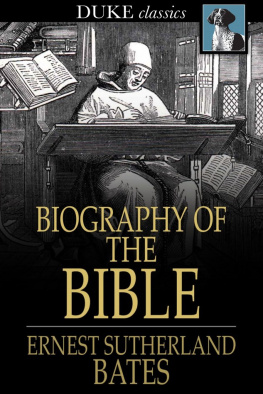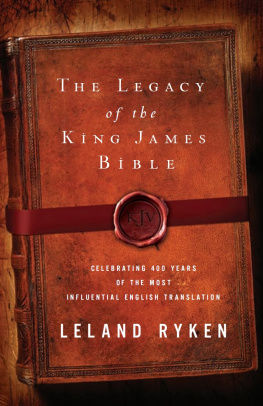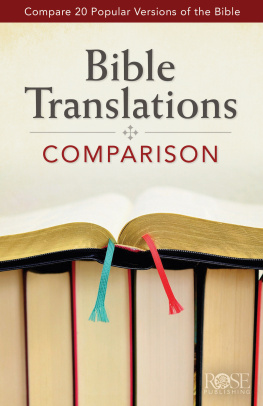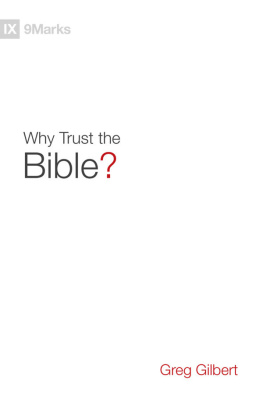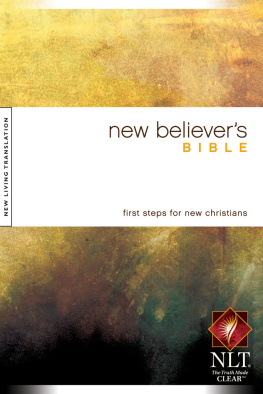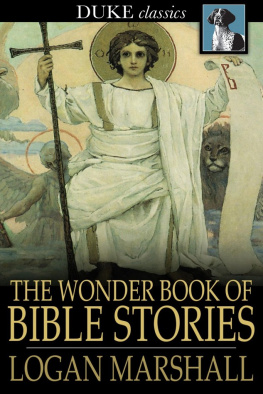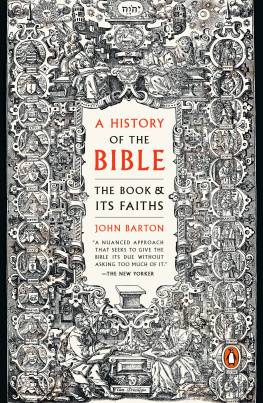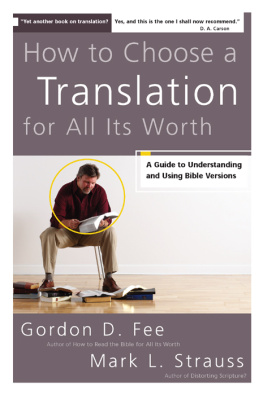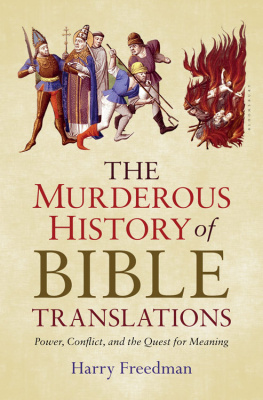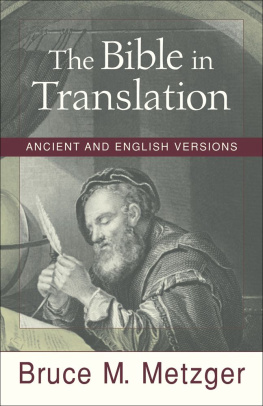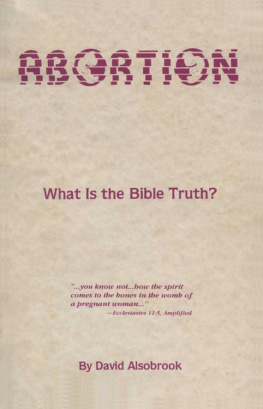BIOGRAPHY OF THE BIBLE
ITS CHARACTER, AUTHORSHIP, TEXT, TRANSLATION AND INFLUENCE ON THE EVOLUTION OF MANKIND
* * *
ERNEST SUTHERLAND BATES
*
Biography of the Bible
Its Character, Authorship, Text, Translation and Influence on the Evolution of Mankind
First published in 1937
ISBN 978-1-62011-096-6
Duke Classics
2012 Duke Classics and its licensors. All rights reserved.
While every effort has been used to ensure the accuracy and reliability of the information contained in this edition, Duke Classics does not assume liability or responsibility for any errors or omissions in this book. Duke Classics does not accept responsibility for loss suffered as a result of reliance upon the accuracy or currency of information contained in this book.
Contents
*
About the Author
*
ERNEST SUTHERLAND BATES
ERNEST SUTHERLAND BATES comes from a long line of New England deacons and members of the clergy. His father was an Episcopal clergyman; his mother's father was a Methodist. Their descendant, however, has devoted himself to the study of philosophy and literature, having taken his Ph.D. from Columbia in 1908. He then served as Professor of English literature in the University of Arizona until 1915 when he moved to the University of Oregon to become, first, Professor of English and then Professor of Philosophy.
In 1926 Dr. Bates joined the staff of the Dictionary of American Biography as its literary editor and two years later his narrative poem The Friend of Jesus made its appearance both in the United States and England, bearing in England its original title The Gospel According to Judas. Other books by Dr. Bates include This Land of Liberty and The Story of Congress. He was joint author of a life of Mary Baker Eddy and of Hearst, Lord of San Simeon. In 1930 he joined the reviewing staff of the Saturday Review of Literature and in 1933 became one of the editors of the Modern Monthly. In 1936 he edited The Bible: Designed to be Read as Living Literature.
By ancestry, training, and natural inclination Dr. Bates is ideally equipped to write about the Bible. When he entered college he planned to become a clergyman but preferred to devote himself to the study of philosophy which increased, rather than diminished, his life-long interest in the Bible. He thus brings to his interpretation of the Bible the learning and wisdom of a varied life.
One General Character
*
A GREAT BOOK is a living organism. Months, years, or centuries may go into its gestation. When finally composed and written down, it can be said to be born, but only born. It then grows and develops through the interpretations of generation after generation of readers, critics, editors, and translators, each adding something, great or little, to its expanding magnitude.
The life of the Bible, above all other books, is a life made up of countless lives, embodying their joys and agonies, their visions, their defeats and aspirations. Four thousand years cling about it. A full millennium of myths and legends passed into it; another millennium was consumed in the writing; bitter battles over canon and creed occupied a third; a fourth has seen the ever-continuing translations into modern tongues.
No individual, no Caesar or Napoleon, has had such a part in the world's history as this book. Wars, reformations, martyrdoms, religions, lie heavy on its head; men fought and died over its meaning; downthrough the ages it has continued to evolve, affecting for good and also for ill millions and millions of lives.
Not until the fourth century A.D. was it called the Bible. Saint John Chrysostom, the golden-mouthed, well deserved that sobriquet when he named the collection of Jewish and Christian sacred scriptures the Bibleone book, the Book. For in spite of the length of time consumed in its creation and in spite of the greatest diversity in the literary and moral value of the various parts, the unity of the Bible is its most compelling feature, so compelling that centuries after the original work was completed, when men of other races and languages sat down to translate the Bible, although they usually collaborated in large groups, nevertheless under the spell of the original they often found themselves writing as one man. This unusual and significant literary phenomenon appeared even in the Septuagint of the first translators, the legendary two and seventy Jewish elders of Alexandria who, according to the tale, in two and seventy days of the third century B.C. rendered the Old Testament into Greek. In all these cases, the quality of the translation sprang from the quality of the original.
When one asks, however, just wherein residesthis unity, so evident to sense that it has always been overemphasized rather than underemphasized, the answer is not easy. The older and still customary explanation that it consists in a definite type of religion maintained from first to last will not bear scrutiny. The religion of the earliest parts of the Old Testament is a tribal religion, strong and stern, intolerant, only half ethical and not even consistently monotheistic; the Prophets introduced nothing less than a religious and moral revolution; the later books of the Old Testament reveal the conflict between humanistic and nationalistic aspirations; and the coming of Christianity brought so great a change that the Jews themselves could not accept it. Yet all these varying attitudes are expressed fully and powerfully in the Bible.
Nor can one say with truth that the Bible is unified because it is always inspired by some religious viewpoint, however divergent the successive viewpoints may be. The collection of love lyrics known as the Song of Songs is purely secular, and the greater part of Ecclesiastes is a work of skeptical philosophy. Yet these are included, and one feels that the pattern is not broken.
The one enduring characteristic which does mark the Bible from first to last is a pronounced attitudeof mind that reveals itself in literary style and content.
The content of the Bible is Man. Alone among the ancient nations, the Jews accepted Man as the object of chief interest. Their religion, while in all its manifold forms preaching absolute submission to God, in another way made God himself subordinate to Man; where half of the Greek myths deal with the doings of the gods among themselves, gods who think only occasionally of the creatures of a day on earth, Jehovah is shown as making the destiny of Man his chief concern. Where the pagan gods are transparent personifications of natural phenomena gradually humanized, Jehovah is fundamentally Man himself gradually idealized to the height of human imaginings of good.
The content furthermore is Average Man. There are no Homeric heroes in the Bible. Abraham is brave and cowardly by turns, Jacob is loyal and a trickster, Joseph indulges in the vainglorious babblings of youth, the noblehearted David under the influence of lust will cause the murder of a devoted servitor, Solomon's wisdom cannot keep him from debauchery. As a result, where Agamemnon and Achilles and all the highborn heroes of Greek tragedy move us but aesthetically, our spirits aretouched simply and directly by our sorrowful twin brothers who acted so like ourselves centuries ago. We can find Abraham in the flesh on a Vermont farm, meet Jacob in the streets of New York, encounter Joseph in any gentle but pampered favorite child, and discover degenerate Solomons in night clubs from the Atlantic to the Pacific coast.

